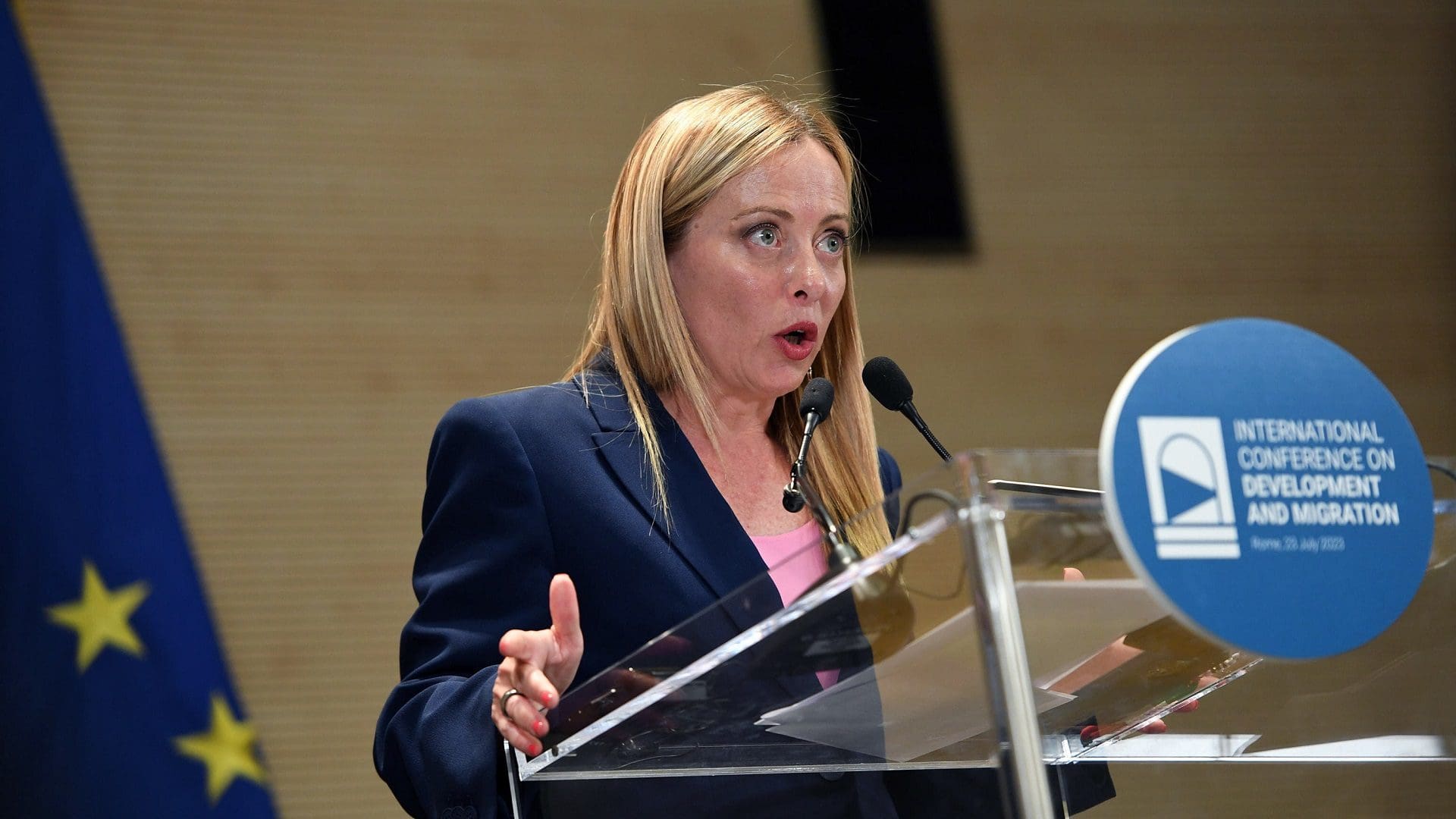Prime Minister Giorgia Meloni held a summit on migration on Sunday, 23 July in Rome, Italy. About 20 nations had representatives present, from the Mediterranean, the Persian Gulf area, and Sub-Saharan Africa. These nations included Tunisia, Libya, Cyprus, Turkey, Greece, the United Arab Emirates, Saudi Arabia, and Ethiopia, among others. EU Commission President Ursula von der Leyen also attended the conference.
PM Meloni’s primary goal for the large-scale meeting was
to get the migrants’ transit countries and countries of origin more involved in managing the migration flow,
thus easing the pressure on European nations.
‘Illegal migration hurts everyone, except for human smugglers, who enrich themselves at the expense of the most vulnerable,’ the Prime Minister emphasised.
She went on to state that ‘in an era where so much attention is given to the right to migrate, we are not paying sufficient attention to the right to not be forced to emigrate, to not be forced to flee their own homes, to not be forced to abandon their land and leave family members in search of a new life’, as quoted by the Associated Press.
She also outlined a four-prong initiative to curb illegal migration into Europe. According to the Italian PM, the four main points of action should be going after organised crime groups making a business out of human smuggling; better managing flows of migrants; supporting refugees; and helping their countries of origin.
Some progress has already been made on those fronts. The UAE have already pledged €100 million to help improve the conditions of the immigrants’ countries of origin. Also, last month,
EU officials and Tunisian President Kais Saied signed a joint declaration about their intent to cooperate on managing the migrant flow into Europe
through the Mediterranean. PM Meloni spearheaded the effort to make that cooperation happen.
However, that deal has also been criticised by some for involving a payment of €1 billion by the EU to the North African country. Meanwhile, Hungary, a Member State in the Union that has also contributed a considerable amount of money to the defence of the EU’s external border, is still waiting for €36 billion in COVID recovery and cohesion funds.
While PM Meloni’s efforts to help ease the pressure of the migration crisis on Europe is already making considerable headway, she is seeing some backlash as well. The NGO Human Rights Watch has published an article on their website titled ‘Rome’s Anti-Migration Summit Exposes Europe’s Growing Disregard for Rights’. Meanwhile, a counter-summit was also organised, running in parallel with the one in Rome only a few miles away, by other pro-illegal migration NGOs.
At her event in Rome, Meloni also stressed that illegal immigration also makes it harder for legal refugees to resettle, as the receiving nations’ quotas are filled up by those arriving illegally. Apart from the prominent theme of the event, migration, the replacement of Russian energy supplies from the Middle East was discussed at the summit as well.
Elmi Farah Boodhari on Twitter: “Italian Premier Giorgia Meloni on Sunday called for new, more equal relationships between Europe and migrants’ countries of origin and transit as she convened a summit of some 20 nations, EU officials and international organizations aimed at stanching flows of illegal migration pic.twitter.com/RSiXpLTWwD / Twitter”
Italian Premier Giorgia Meloni on Sunday called for new, more equal relationships between Europe and migrants’ countries of origin and transit as she convened a summit of some 20 nations, EU officials and international organizations aimed at stanching flows of illegal migration pic.twitter.com/RSiXpLTWwD
PM Meloni’s Relationship With Hungary
Many conservatives in Hungary were elated to see Giorgia Meloni elected in the fall of 2022. After all, not only was she a conservative herself, she also had expressed her respect for Prime Minister Viktor Orbán of Hungary well before her election. The two met in Rome to discuss the future of the European right back in August 2021.
Despite that, Hungary was not present at the migration summit in Rome put together by PM Meloni. Also, earlier this month, PM Orbán attended another conference on the same issue in Vienna, without Meloni.
There has been a little tension between Rome and Budapest since Meloni took office, brought on by Meloni trying to persuade Poland and Hungary to go along with the migrant pact proposed by the European Commission. The positions of Hungary and Italy regarding Ukraine also diverge. However, the Italian Prime Minister has spoken with respect about the two Eastern European nations since, and has remained a fierce opponent of illegal immigration into Europe, just like the Orbán administration.
Related articles:







